| کد مقاله | کد نشریه | سال انتشار | مقاله انگلیسی | نسخه تمام متن |
|---|---|---|---|---|
| 4269813 | 1610860 | 2014 | 8 صفحه PDF | دانلود رایگان |
IntroductionThe terminology for the genitourinary tract symptoms related to menopause was vulvovaginal atrophy, which does not accurately describe the symptoms nor is a term that resonates well with patients.AimIn 2012, the Board of Directors of the International Society for the Study of Women's Sexual Health (ISSWSH) and the Board of Trustees of The North American Menopause Society (NAMS) acknowledged the need to review current terminology associated with genitourinary tract symptoms related to menopause.MethodsThe two societies cosponsored a terminology consensus conference, which was held in May 2013.Main Outcome MeasureThe development of a new terminology that more accurately described the genitourinary tract symptoms related to menopause.ResultsMembers of the consensus conference agreed that the term genitourinary syndrome of menopause (GSM) is a medically more accurate, all‐encompassing, and publicly acceptable term than vulvovaginal atrophy. GSM is defined as a collection of symptoms and signs associated with a decrease in estrogen and other sex steroids involving changes to the labia majora/minora, clitoris, vestibule/introitus, vagina, urethra, and bladder. The syndrome may include but is not limited to genital symptoms of dryness, burning, and irritation; sexual symptoms of lack of lubrication, discomfort or pain, and impaired function; and urinary symptoms of urgency, dysuria, and recurrent urinary tract infections. Women may present with some or all of the signs and symptoms, which must be bothersome and should not be better accounted for by another diagnosis.ConclusionThe term GSM was presented and discussed at the annual meeting of each society. The respective Boards of NAMS and ISSWSH formally endorsed the new terminology—genitourinary syndrome of menopause—in 2014. DJ Portman, MLS Gass, on behalf of the Vulvovaginal Atrophy Terminology Consensus Conference Panel. Genitourinary syndrome of menopause: New terminology for vulvovaginal atrophy from the International Society for the Study of Women's Sexual Health and The North American Menopause Society. J Sex Med 2014;11:2865–2872.
Journal: The Journal of Sexual Medicine - Volume 11, Issue 12, December 2014, Pages 2865–2872
